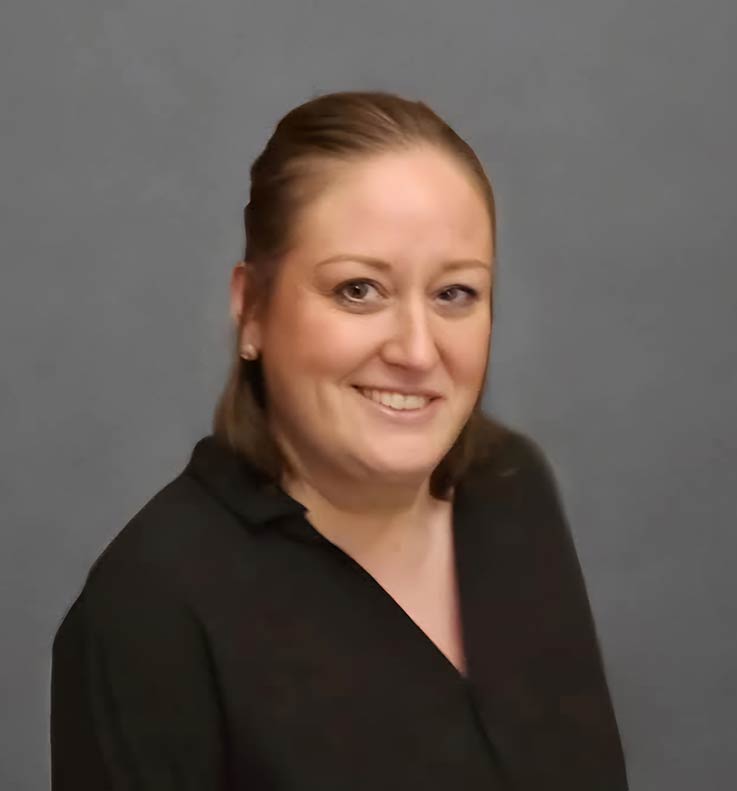
Provide Therapeutic Support as a Clinical Mental Health Counselor
If you have compassion for others and a willingness to help, you already have two of the qualities necessary to become an effective counselor. You will be prepared for this life-changing career after completing IUP's Clinical Mental Health Counseling MA program.
You'll have the chance to not only change lives but also take part in real social action and be an advocate for those who need a voice.
You can enroll in this CACREP-accredited, 60-credit degree program at our campus in Indiana, Pennsylvania or at IUP's Pittsburgh East campus. Students are permitted to attend part-time or full-time, with flexibility as needed throughout their time in the program. Our courses are offered primarily face-to-face, and we welcome both domestic and international applicants.
If you have a master’s degree and at least 48 credit hours in counseling or a closely related field, you might be able to enroll in the licensure-only track, which will give you the additional credits you need to meet Pennsylvania state licensure standards.
In addition, you are invited to apply for a graduate assistantship. A limited number of 10 or 20-hour-per-week departmental positions are awarded to degree-seeking graduate students within the Department of Counseling and Human Development each year.
Graduate assistants work under the supervision of a faculty member and are provided a partial tuition reduction, as well as a stipend that is distributed throughout the graduate assistant contract period, which is typically fall and spring semesters.
If you have any questions about these graduate assistantships, email counselingdept-assistantships@iup.edu.
How You Will Learn
As a student in the Clinical Mental Health Counseling master’s degree program, you will develop creative, clinical, and critical thinking skills. You will also engage in real-world practical clinical experiences that prepare you for entering the counseling profession and help you gain the necessary hours to seek your professional license.
Your courses will prepare you to provide group and individual counseling to people who:
- Are seeking personal and relational growth
- Need help navigating crisis experiences
- Seeking support for mental health
You will develop your skills by focusing on four key areas of mental health counseling:
- Advocacy
- Development
- Intervention
- Prevention
Our caring faculty mentors will teach you and collaborate with you as you develop clinical expertise.
Why Apply to the Clinical Mental Health Counseling Program at IUP?
Across various settings, there is a growing need for effective counselors. We’ll help you prepare to fill this need and pursue the career path you envision.
The Clinical Mental Health Counseling MA program is accredited by the Council for the Accreditation of Counseling and Related Educational Programs. In addition, IUP’s program has strong ties with community agencies, private practitioners, and other service providers in the greater Indiana and Pittsburgh areas. These professional relationships and our strong reputation provide excellent opportunities for gaining your required clinical hours, both during training and in your pursuit of licensure after graduation.
The program also fully prepares you to take the National Counselor Exam. Once you have completed 3,000 postgraduate, supervised clinical hours, you can apply for your Pennsylvania license and become a licensed professional counselor (LPC). Read additional information about state licensure. Additionally, Pennsylvania now offers graduates the opportunity to apply for Associate Professional Counselor Licensure before completing their 3,000 postgraduate hours. You can find additional information online.
Imagine Your Future
As a trained clinical mental health counselor, you can decide where you would like to apply your expertise and training. Licensed counselors are in high demand in a variety of settings, including:
- Community mental health agencies
- Correctional facilities
- Drug and alcohol treatment programs
- Healthcare facilities and programs
- Nonprofit organizations
- Private practice
As a supplement to clinical practice, you could choose to pursue a doctoral degree in a related area:
- Counselor education and supervision
- Educational leadership
- Psychology
- Public health
Similar Occupations
- Care coordinator
- Case manager
- Clinical supervisor
- Mental health services administrator
- Psychiatrist
- Psychologist
- School counselor
- Social worker
Classes and Requirements
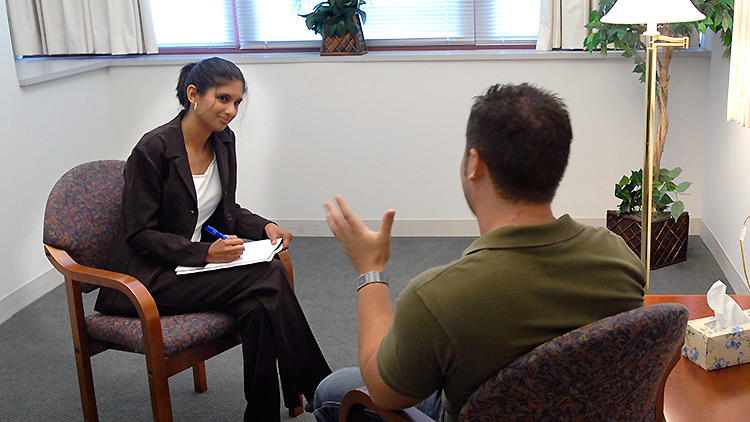 You will develop your skills as a mental health counselor in a program that is designed to maximize your growth through coursework and clinical experience.
You will develop your skills as a mental health counselor in a program that is designed to maximize your growth through coursework and clinical experience.
During the program, you’ll learn to work with diverse client populations and use individual and group counseling to help people:
- Engage in holistic personal growth
- Navigate various life challenges
Your clinical experience will introduce you to a variety of settings and different populations, which will help you decide where you’d like to work after graduating. You can also use your electives to focus on your professional interests and develop specialized knowledge.
Full Academic Catalog Listing
The course catalog is the official reference for all our degree and course offerings. Check it out for a full listing of the classes available and requirements for this degree.
- Loading...
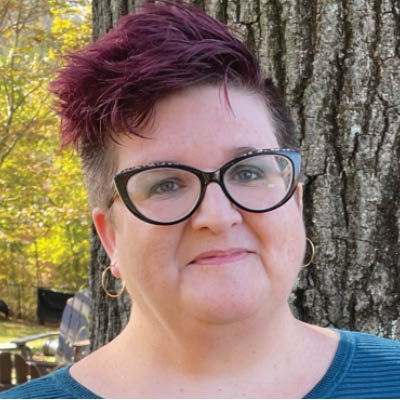
Chris Burd ’22, Clinical Mental Health Counseling
The faculty in the Counseling Department provides the perfect mix of instruction, experiential learning, and self-reflection, all of which are necessary on the journey of becoming a counselor.
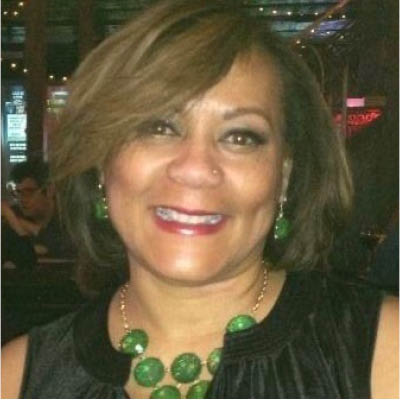
Carla Adams M’16, Clinical Mental Health Counseling
Each and every course within the Clinical Mental Health Counseling master's program has been beneficial to my career, particularly my field experiences working with diverse and marginalized populations.
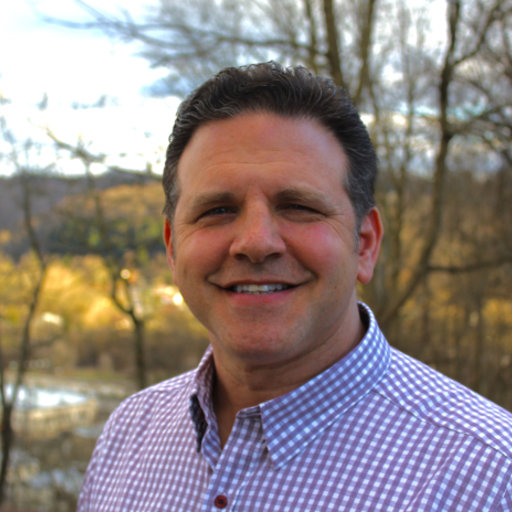
Michael Verona M’17, D’20, Clinical Mental Health Counseling, Counselor Education and Supervision
I earned two graduate degrees in counseling, and the most beneficial aspects of the programs were the clinical and teaching experiences.
Post-Master's Licensure-Only Track (CNSS-LICENSE)
Do you already have a master’s degree and at least 48 credit hours in counseling or a closely related field? You may be able to enroll in the licensure-only track, which will give you the additional credits you need to meet Pennsylvania state licensure standards. If you already hold a master's degree with a minimum of 48 credit hours, this program can give you the additional credits you need to meet licensure standards.
Application Details
To explore your eligibility for the licensure-only track, follow these steps:
- Complete the full program application and meet the same admissions requirements as degree-seeking applicants.
- Contact the program coordinator, Holly Branthoover (hbrnthvr@iup.edu), to have your graduate transcript(s) evaluated. This will determine your eligibility for the licensure-only track, and we’ll be able to recommend any courses you need beyond those you’ve already earned.
- The Pennsylvania State Licensure Board makes all final determinations about which degrees and courses will be considered acceptable for licensure. If you have a question about a course or degree being eligible for licensure acceptance, please contact the Licensure Board directly. As part of the transcript audit process, you may be asked to consult directly with the Licensure Board before the graduate coordinator renders a decision on your eligibility for the licensure-only track.
Please note: All admitted students are required to submit and maintain current necessary clearances. If you do not meet these eligibility requirements, you will be invited to apply for the full 60-credit Clinical Mental Health Counseling MA program. Course transfer options may be provided in accordance with the policies set forth by the Office of Graduate Education and Academic Planning.
Full Academic Catalog Listing
The course catalog is the official reference for all our degree and course offerings. Check it out for a full listing of the classes available and requirements for this degree.
- Loading...
Get Involved beyond the Classroom!
IUP’s chapters of Chi Sigma Iota and Counselors for Social Justice offer two great opportunities for students to connect with one another and engage with our surrounding communities outside of the classroom!
Chi Sigma Iota
Chi Sigma Iota is an international honor society that recognizes and promotes academic excellence and leadership within counseling and counselor education. Members are inducted annually and work together throughout the year to engage in meaningful service work, provide opportunities for professional development, and host social events so that students can unwind and have a little fun! Our chapter, Iota Upsilon Pi, is currently advised by Professor Matthew Nice.
Counselors for Social Justice
Counselors for Social Justice, a division of the American Counseling Association, is another great way to get involved. Student members at IUP collaborate to identify and address issues of oppression, marginalization, and underrepresentation within the field of counseling while simultaneously working to advocate for equity, justice, and systemic change at all levels of our shared profession.
Our chapter works to connect students across all of our tracks and both campuses by regularly hosting critical discussion groups and facilitating opportunities for interested students to engage in advocacy on behalf of and in collaboration with the communities we serve. Most recently, CSJ sponsored the organization of a Diversity, Equity, and Inclusion Resource Library, available to all at Pittsburgh East. CSJ is currently advised by Professor Sibyl West. CSJ also sponsors an annual social justice conference at IUP Pittsburgh East.
In addition to taking advantage of these opportunities, our master’s students are regularly encouraged to participate in faculty scholarship and service efforts. We pride ourselves on serving as mentors outside the classroom and invite students to reach out!
Attend an Information Session
If you would like to learn more about our Clinical Mental Health Counseling program, our admissions process, and our departmental culture, we encourage you to attend one of our face-to-face or virtual program information sessions.
